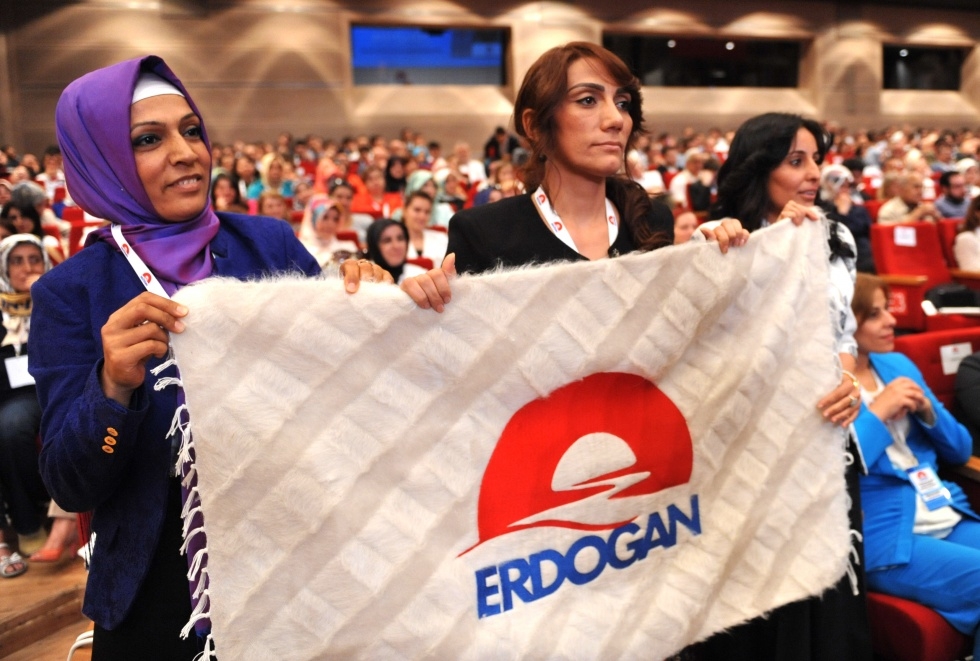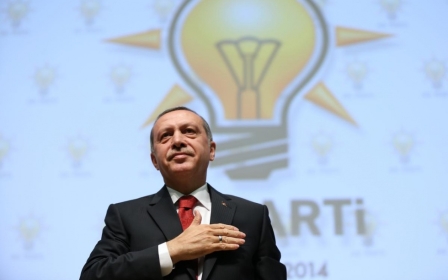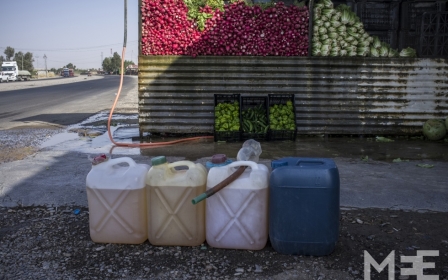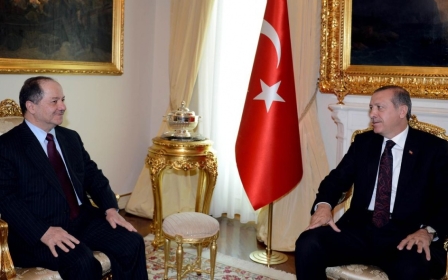Turkish poll shows populace wavering over Erdogan as President

Turkey appears deeply divided over Prime Minister Recep Tayyip Erdogan's leadership even though he is the hot favorite to win next month's presidential elections.
A new poll published on Wednesday found that over half of the 1,001 people surveyed are dissatisfied with the direction Erdogan is taking the country in, according to the Pew Research Centre.
Turkey will for the first time vote directly for its next president on 10 August, with Erdogan looking set to continue more than a decade at the heart of the country’s leadership.
Though there are three candidates in the race, Erdogan has widely been seen as a frontrunner – he is the only candidate to have a campaign logo, and promised in his first campaign rally to be an “active president” if elected.
But amid political tensions and allegations of corruption surrounding Erdogan's government, the new poll of 1,001 people, who were surveyed between April 11 and May 14, found that opinion on his leadership record is sharply divided.
Some 44 percent of those surveyed said they believed the former Istanbul mayor and his Justice and Development Party (AKP) had been steering Turkey in the right direction.
Erdogan has been able to garner significant support among the populace during over a decade as Prime Minister by overseeing a period of economic growth – in 2010 Turkey boasted one of the world’s highest growth rates at 8.9 percent.
However, around 51 percent were dissatisfied with the path the nation is taking.
"Half say the economy is doing well, while 46 percent think it is in bad shape. Forty-eight percent say Erdogan is having a good influence on the country; the same percentage believes he is having a negative impact," the poll by the US-based centre noted.
After 12 years in office, during which his government has tamed the influence of the once-powerful military, Erdogan has faced the worst crisis of his rule over allegations that he and his allies engaged in corruption which ranged from bribery to gold smuggling and illicit trade with Iran.
In a crackdown following the accusations, his government has already sacked thousands of police and prosecutors, and tightened controls over the judiciary and the Internet.
A majority of Turks also said they supported street protests, which were initially centred on Istanbul's Gezi Park last year - 55 percent disapproved of the way Erdogan moved to quash them.
Several people died as riot police moved in, and thousands were injured.
Previous Turkish presidents, including Abdullah Gul, have performed largely ceremonial functions.
However, Deputy Prime Minister Bulent Arinc indicated to AFP in a recent interview that Erdogan would be a different kind of head of state.
"If Mr Prime Minister becomes president... he will certainly be an active president. This is his nature," Arinc said.
At his first campaign rally, Erdogan told the crowd that, if elected, he would be “nominated to a higher post to better serve you, my country and my nation.”
The poll found that faith in Turkey's military has also sharply diminished, with only 55 percent of those surveyed saying they had a good opinion of the army. That was sharply down from 2007 when 85 percent saw the military as having a positive role.
On the international front, some 73 percent of those had negative views on the US, while 66 percent were against the EU.
Despite this, a majority still favoured entering the European Union.
The poll has a margin of error of plus or minus 4.5 percentage points.
Middle East Eye propose une couverture et une analyse indépendantes et incomparables du Moyen-Orient, de l’Afrique du Nord et d’autres régions du monde. Pour en savoir plus sur la reprise de ce contenu et les frais qui s’appliquent, veuillez remplir ce formulaire [en anglais]. Pour en savoir plus sur MEE, cliquez ici [en anglais].




